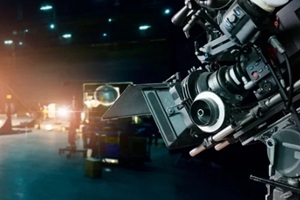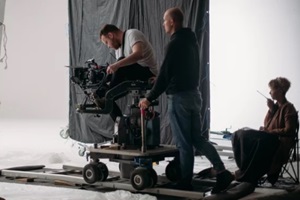 A film production faces many risks—and contrary to popular belief, a team is not necessarily safe from perils once the filming process is complete. In fact, pre- and post-production are equally fraught with hazards, albeit different from what a studio may face during filming.
A film production faces many risks—and contrary to popular belief, a team is not necessarily safe from perils once the filming process is complete. In fact, pre- and post-production are equally fraught with hazards, albeit different from what a studio may face during filming.
For this reason, securing insurance for feature film production is essential to address all the risks you might face from start to finish. Film producers, line producers, and production coordinators involved in the planning and execution of feature films are tasked with mitigating risks and ensuring the smooth progression of the film from pre-production to post-production.
They must partner with a trustworthy insurance agency to acquire uninterrupted insurance coverage, covering aspects such as location changes, equipment transport, and post-production processes.
Here is an overview of the baseline policies that are helpful every step of the way.
Pre-Production Coverage
Before production starts, studios usually secure venue contracts for shoots, hire talent, hold auditions, and more. This phase is the preparatory stage, and it is the best time to acquire insurance policies that the production will require to proceed from both a technical and practical standpoint.
Workers’ Compensation
Even though the film has not entered production yet, now is the best time to select a good workers’ compensation insurance policy. This type of protection is typically mandatory for productions above a specific size, so your studio cannot continue toward production without this policy.
Workers’ compensation protects the employees who make your production work. Suppose they are injured and need medical treatment while doing their job. In that case, workers’ compensation insurance can pay for the expenses related to the situation: medical bills, rehabilitation fees, prescriptions, in-patient hospital stays, and more.
Should they pass away as a result of their injury, workers’ compensation provides money to their families to support them with hardships such as funeral costs.
Liability
The other type of insurance protection to acquire during pre-production is general liability insurance. This coverage protects against third-party claims, either of bodily injury or property damage caused by the production.
Liability insurance is essential at this stage because most venues will not permit a studio to shoot on-premises if it cannot demonstrate that it has a liability insurance policy. Thus, studios scheduling their shoots during pre-production must acquire one.
Production Coverage
 Once production is underway, the insurance needs of a film studio expand.
Once production is underway, the insurance needs of a film studio expand.
Equipment
All cameras, lights, sound equipment, and more require protection throughout filming. It is wise to secure an equipment insurance policy to address damage or replacement costs and protect the machinery during travel.
Some equipment insurance will automatically cover items in transit; alternatively, a studio may need to expand its holdings to an inland marine policy to address this gap.
Cast and Crew
The cast and crew are the lifeblood of a film; without them, there would be nothing to shoot. Cast and crew insurance safeguards these irreplaceable workers with continuous health and accident coverage. Suppose an essential cast member cannot continue working. Depending on the policy, insurance might cover the cost of reshoots with a new actor.
Post-Production Coverage
Once production is wrapped, it is time for the film to complete its post-production stage, during which the final product is refined and then distributed.
The partnerships with distributors are some of the most important during this time, and insurance coverage continues to be an essential part of a studio’s strategy to make sure nothing goes wrong.
Many of the coverages acquired earlier in the process can continue into post-production (such as equipment insurance that protects data storage for the film’s files); always check the policy details. However, one additional type of coverage that is especially useful at this time is:
Errors & Omissions
E&O insurance covers studios against potential claims of plagiarism, copyright infringement, defamation, and many other mistakes that could stop a film from being distributed.
For instance, if a finalized film goes out without anyone realizing that a Coca-Cola can is visible in one shot and the studio did not have the rights from the company to use this registered logo, E&O can cover potential legal fees or the cost to make the situation right.
Secure Continuous Coverage With MFE Insurance
Adequately protecting a film project from start to finish requires a complete suite of insurance solutions—and the best way to secure them is by working with an insurance agency with years of experience, specifically with film studios.
MFE Insurance’s expertise in feature film production allows us to provide thorough and continuous coverage options for all stages of your project. Contact MFE Insurance to obtain a consultation and quote.

